Do Squats Work Abs? Variations & 5 Alternatives
Author:
Reviewed by:
(21 years of Oly Lifting experience)
Unlock your full potential by engaging with our experts and community! Have questions about your fitness journey or looking for expert advice on weightlifting techniques? Don’t hesitate — leave a comment below and Jason Li will provide a personalized answer and insights to help you reach your goals.
Torokhtiy is reader-supported. Some links are affiliate links, and we may earn a commission at no extra cost to you. See our disclosure page for details.
If exercises were celebrities, squats would be A-listers. They’re known for being a full-body exercise and a lot of people think of them as shortcuts to firm, rounded glutes. But what about abs? Do squats work abs or are they focused only on your lower body?
In short – yes, squats pay a decent amount of attention to your abdominal area, but they’re not a magic wand that can substitute exercises that target your abs directly. If you want the best results possible, you’ll combine squats with things like crunches and planks and then you’ll see some real results.
No more muffin tops and no more going to the beach in your T-shirt. But of course, workouts are more than just aesthetics. We’re all after a lean physique, but squats can do a lot more for your abs and core than just making you look Instagrammable.
Do squats work your core and what exactly happens to your abs when you squat!
Let’s absolutely get to the bottom of this!
Do squats work abs? Yes, absolutely. Squats engage the entire core, including your abs. The effort to stabilize the spine and pelvis during squats significantly activates and strengthens the abdominal muscles and contributes to core development.
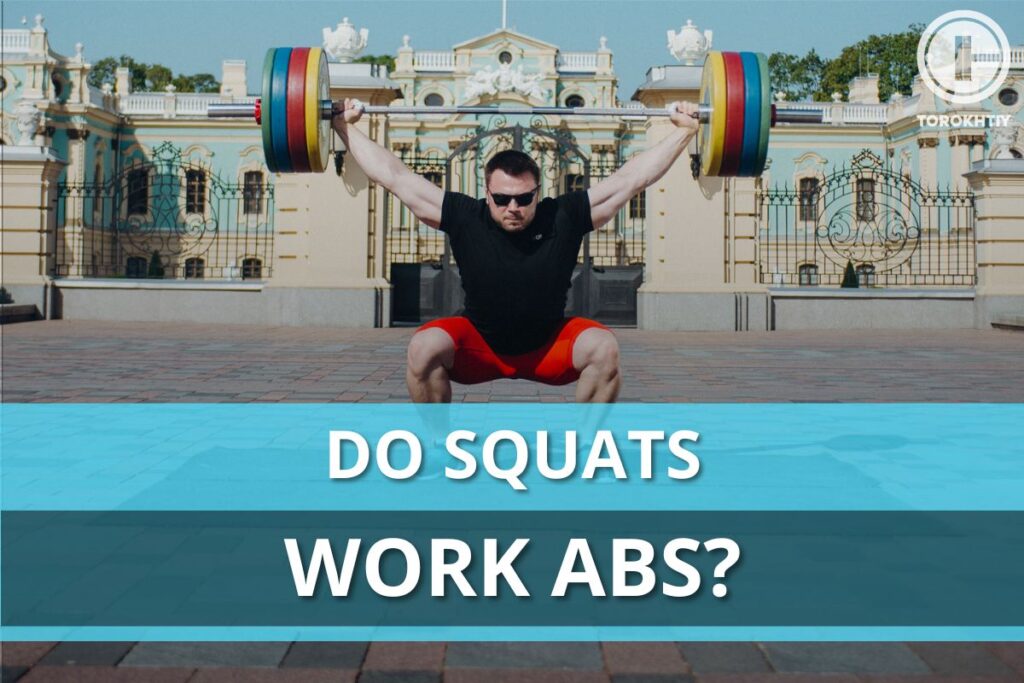
What Muscle Groups Make Up the Abs?
We all want defined abs and a flat stomach, but what exactly are abs made up of? Is it the same as core? Are abs just the six pack you’re trying to get to show up?
Abs, or abdominal muscles, support your core and play a big part in keeping your body stable. They consist of several muscle groups that all work together – rectus abdominis, external obliques, internal obliques, and the transversus abdominis.
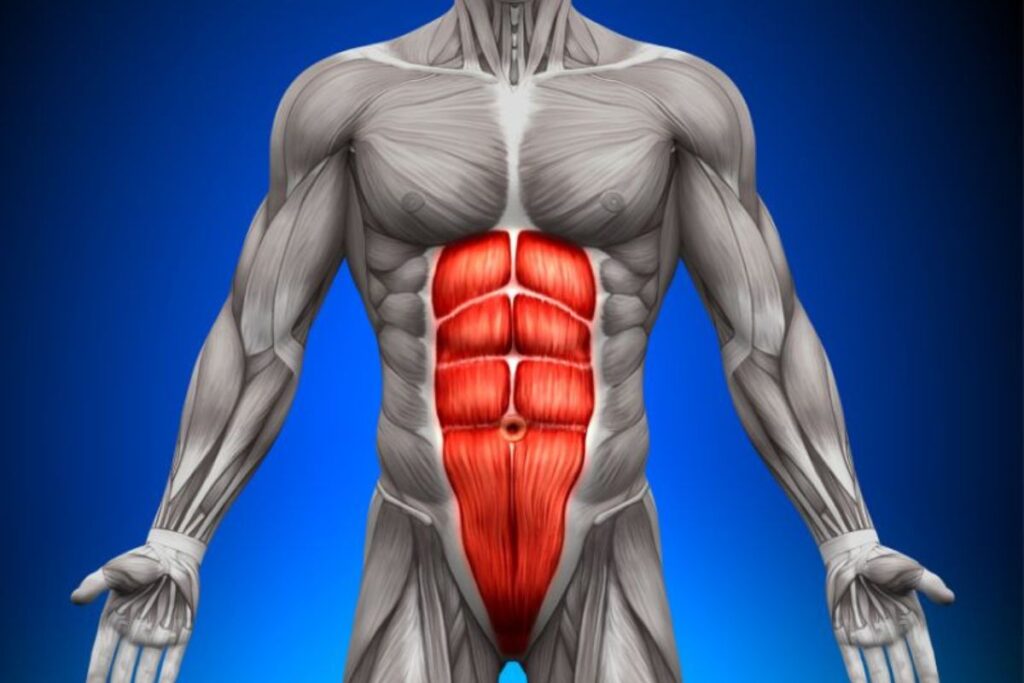
The rectus abdominis runs vertically along the front of your abdomen and it’s responsible for flexing the spine and creating that coveted six-pack.
The internal and external obliques are on the sides of your abdomen and help in rotational movements and lateral flexion. Lastly, we have the transversus abdominis, which acts sort of like a corset and provides deep stability to the core.
Follow us!
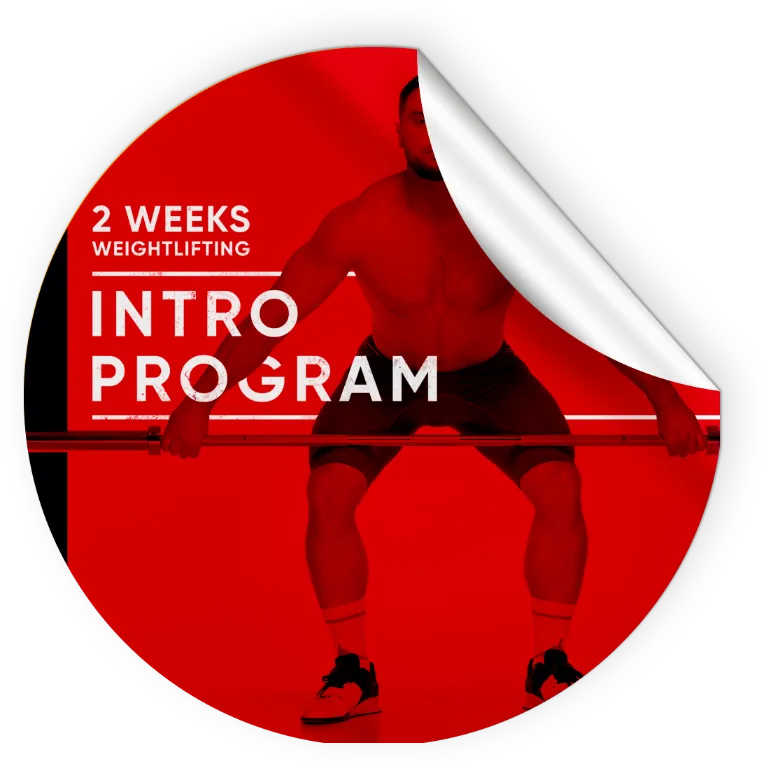
Free!
Get a 2-week Weightlifting Program as a bonus for the subscription to kickstart your training plan!

Free!
Contrary to popular belief, abs and core are not the same thing – abs are only a part of your core. The core is made up of a larger group of muscles, which includes the abs, but also the lower back, hips, and pelvis. Together, they help you maintain proper posture, stability, and support for everyday movements.
From an anatomical standpoint, abs are really unique. Take rectus abdominis, for instance. It’s composed of distinct segments that make it look like muscle “blocks”, which we all see as a toned midsection.
The obliques (both internal and external) allow for a range of movements in different directions, and the transversus abdominis (which is beneath all other abdominal muscles) is a deep stabilizer.
When you work to make these muscles stronger, you’ll improve overall stability and functional movement in your everyday life. Naturally, you’ll also get that six-pack, which is why the majority of people work on their abs.
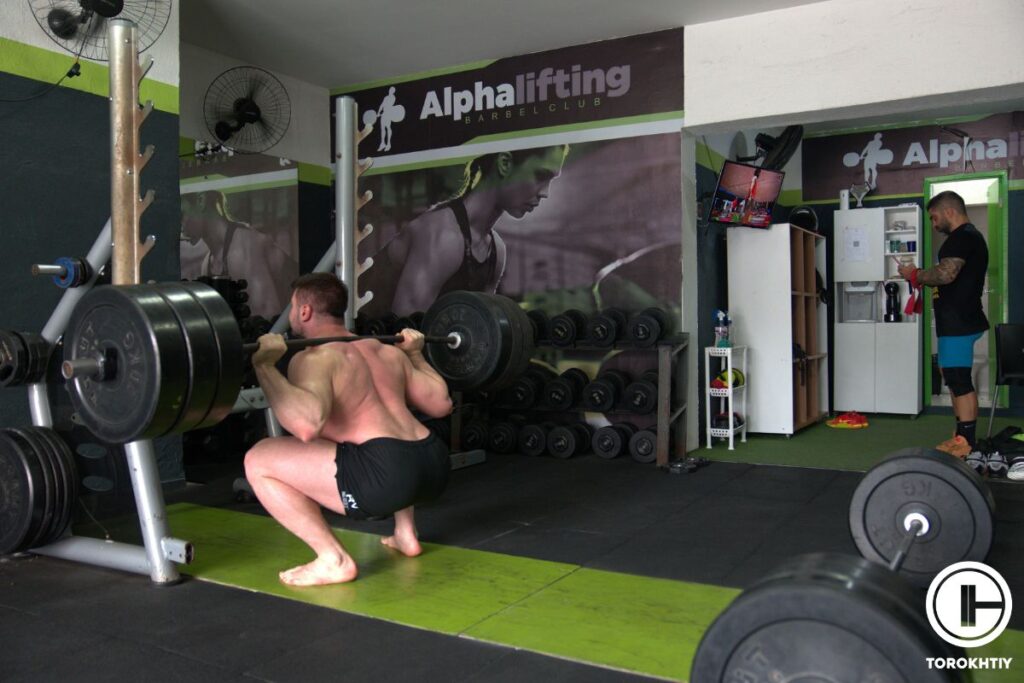
Do Squats Work Abs?
Squats work a lot of muscle groups and engage major leg muscles, which is why we love them so much. When you think of squats, your glutes are probably the first thing that comes to mind, but there’s a lot more to squats than just your lower body.
They have a lot of impact on your glutes and legs, but they also engage the core and abs. When you squat, your body needs a way to keep itself stable, so it activates various muscle groups to control the movement.
The deep stabilizing muscles (including the transversus abdominis) work to maintain balance and support the spine during squatting. The other muscles the abs are made out of are also involved in squats because they stabilize your torso as you lower and raise yourself.
If you want to really understand squats, you need to be familiar with their dynamic nature. Squats mimic real-life movements like sitting and standing, so they’re a compound exercise that engages multiple muscle groups at the same time.
As you lower yourself into a squat, your abs contract to keep your posture upright and prevent the spine from collapsing forward. As you get up, the squat needs your core to engage to lift you back to the standing position.
Squats stimulate the release of growth hormone and testosterone, and if you know anything about muscle growth, you know it can’t happen without these guys. As the core muscles engage to stabilize the spine and pelvis during squatting, they’re subjected to a progressive resistance that promotes strength and endurance.
So, when someone asks you, “Are squats good for abs?”, you know what to tell them!
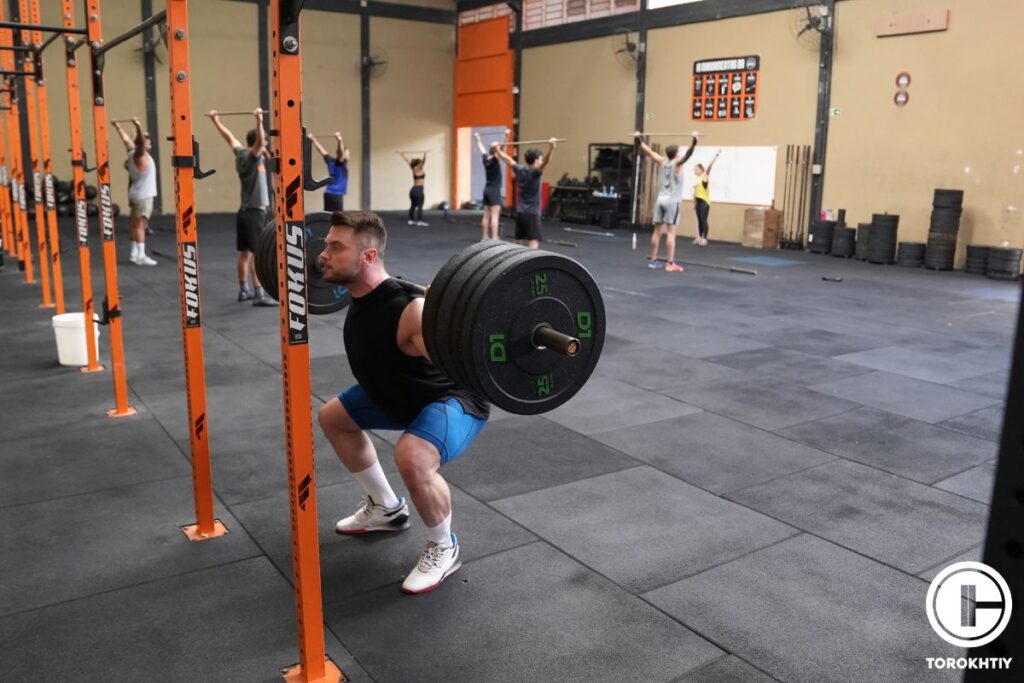
Which Squat is Best For Working the Abs?
Front squats are superstars and they’re extremely effective at targeting your abs. Unlike traditional back squats where the barbell is on the upper back, front squats have the barbell across the front of the shoulders.
This shift in weight distribution forces your body to keep an upright posture, and what do you think needs to be engaged for that? The abs, of course! Your abs are very engaged throughout the entire movement because front squats put direct emphasis on the rectus abdominis and the obliques.
If you get tired of front squats but still want to work on your abs, goblet squats are a good choice, too. They prompt you to keep your body upright, which means the abs need to work quite hard.
The core works to stabilize the body, especially as the weight is positioned in a way that challenges your balance and needs an increased effort from the abdominal region.
You can also do sumo squats, which need a wide stance and toes pointed outward. They place unique stress on the core as the body moves through a wider range of motion. The sumo squat will engage your inner thighs and, by extension, the core because it needs to work harder to keep you stable during squatting.
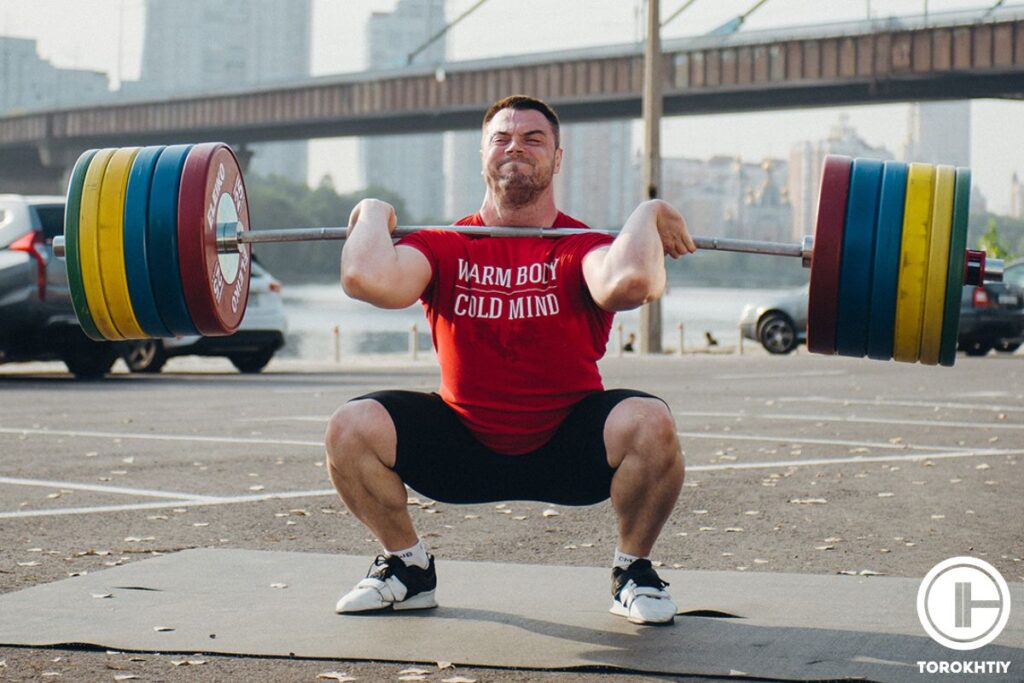
How Does Squat Compare to Direct Abdominal Exercises?
As great as squats are, they’re not all you need and they really don’t compare to exercises that target your abs directly. Squats should have a place in your training routine because they strengthen your core and work a lot of muscle groups in a functional, integrated manner, but exercises like crunches and planks isolate your abs and target them a lot more effectively.
Squats and targeted abdominal exercises serve different purposes, so they’re not interchangeable. Direct abdominal exercises focus directly on the abs and allow for some concentrated muscle activation.
If you look at crunches, you’ll see that they involve the flexion of the spine and target upper and lower portions of the rectus abdominis. Planks are another great exercise, and they emphasize isometric contraction, which engages multiple muscles in your core at the same time so you can keep a stable position.
When you compare these to squats, it becomes more than obvious that ab exercises proved a more localized and concentrated effort.
So, how do squats fit into your fitness routine if you’re working on your abs? They actually complement your training nicely because they contribute to the strength and stability of your core.
🔻GET A FREE PROGRAM DEMO: 12 Week Squat Program by Oleksiy Torokhtiy
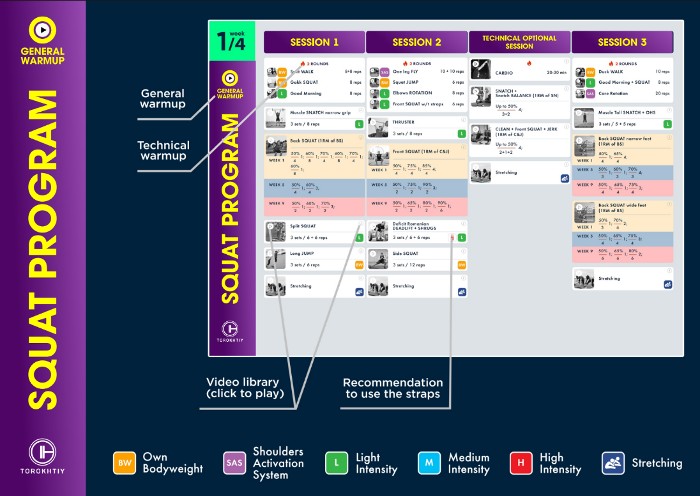
Do you want to double your squat strength? In just 12 weeks, you’ll be able to boost your squat results.
Enter your details and get a free demo (1 free week) of the squat program straight into your inbox.
5 More Effective Exercises to Build Abs
Let’s set squats aside for a second to focus on the exercises that will be a bit more effective in building a six-pack. Make sure your form is correct at all times because that’s how you get the most out of every exercise.
1. Crunches
Good ol’ crunches are a basic exercise, and everyone has done them at least once. They’re very effective because, as you lift your shoulders off the ground, crunches create a flexion movement and engage your abs. Just make sure to keep your movements controlled and avoid pulling on the neck so you don’t mess up your form.
2. Leg Raises
These are excellent for your lower abs and they’re super simple to do – just lie on your back and lift your legs while keeping them straight. This challenges your lower abs and helps develop strength and definition in that area.
3. Twists
Twists do a great job at engaging your obliques. Sit on the floor with your knees bent, lean back a little, and rotate your torso from side to side, touching the ground beside you with each twist.
4. Planks
Another basic exercise, but this one is a lot harder than it looks. Since you have to maintain a straight line from head to heels, your entire core gets engaged. Hold the plank position for a set duration to build endurance and strength.
5. Bicycle Crunches
Bicycle crunches have the benefits of a traditional crunch with a twisting motion, and they engage upper and lower abs. Lift your shoulders off the ground and bring the opposite elbow towards the opposite knee in a cycling motion. Other than engaging your muscles, this will also improve your coordination.
FAQ
Do squats burn belly fat?
You can’t target fat loss, although it would be wonderful if you could. Squats’ main job is to make your muscles stronger, but if you want to lose fat, you need a calorie deficit. Squats contribute to overall calorie expenditure and metabolic rate, but you’ll still need cardio, strength training, and a good diet to lose weight.
Are squats or crunches better for abs?
Crunches, hands down. Crunches and squats serve different purposes. Although squats engage your abs, crunches target them directly and promote definition.
Conclusion
If you want a six-pack, you can’t get it just by doing squats. Squats will help, it’s good to do squats for abs, and your fitness routine will be more well-rounded if you include a variety of exercises. But the best ab exercises target your abs directly, so don’t forget to do crunches, planks, twists, etc. along with your squats.
Do you squat, and why? Have you seen any differences in your ab area since including squats into your workouts? What is your favorite ab exercise?
Share any info, tips, or questions you have and let’s all have a six-pack by this summer!
Also Read:
- 4 Front Squat Benefits That Will Make You Add It to Your Routine
- 24 Best Squat Alternatives For Different Needs
- 14 Best Back Squat Alternatives Trainers Recommend
- Do Deadlifts Work Abs?
- 11 Squat Accessory Lifts to Boost Your Squat Results
- 10 Best Squat Alternatives For Bad Back (CPT Recommended)
- 10 Best Front Squat Alternatives for Home and Gym
Referenses:
- Aaron A. Shaner, Jakob L. Vingren, Disa L. Hatfield, Ronald G. Budnar Jr., Anthony A. Duplanty, David W. Hill “The acute hormonal response to free weight and machine weight resistance exercise,” Journal of Strength and Conditioning Research 28, no. 4 (2014): 1032-1040.
- David Bautista, Dustin Durke, Joshua A. Cotter, Kurt A. Escobar, Evan E. Schick “A Comparison of Muscle Activation Among the Front Squat, Overhead Squat, Back Extension and Plank,” International Journal of Exercise Science 13, no. 1 (2020): 714-722.
- Harvard Health Publishing Staff “Strengthening your core: Right and wrong ways to do lunges, squats, and planks,” Harvard Health Publishing, https://www.health.harvard.edu/blog/strengthening-your-core-right-and-wrong-ways-to-do-lunges-squats-and-planks-201106292810 (accessed February 16th, 2024)
- Kate Neudecker “Learn How to Do Front Squats to Fire up Your Quads and Light up Your Core,” Men’s Health, https://www.menshealth.com/uk/how-tos/a735538/front-squat/ (accessed February 16th, 2024)
- Michal Wilk, Miroslav Petr, Michal Krzysztofik, Adam Zajac, Petr Stastny, “Endocrine response to high intensity barbell squats performed with constant movement tempo and variable training volume,” Neuro Endocrinology Letters 39, no. 4 (2018): 342-348.
- Photos by Torokhtiy Media Team, decade3d, Canva.com.
Why Trust Us?
With over 20 years in Olympic weightlifting, strength training, nutrition coaching, and general fitness our team does its best to provide the audience with ultimate support and meet the needs and requirements of advanced athletes and professional lifters, as well as people who strive to open new opportunities and develop their physical capabilities with us.
By trusting the recommendations of our certified experts in coaching, nutrition, and sports training programming, as well as scientific consultants, and physiotherapists, we provide you with thorough, well-considered, and scientifically proven content. All the information given in the articles concerning workout programming, separate exercises, and athletic performance, in general, is based on verified data.
The product testing process is described in more detail here.
Author: Jason Li
Personal Coach, Functional Range Conditioning Mobility Specialist
Jason is an NYC personal training expert and National level Olympic Weightlifting Coach with over 10 years of experience training everyday clients to high levels of performance. He has trained everyone from youth (13 years old and under) to masters (60+ years old) to regional and national rankings for powerlifting, Olympic Weightlifting, Short distance (up to 200m) sprinting, discus & hammer throwing.
Reviewed by: Oleksiy Torokhtiy
Olympic Weightlifting Champion, PhD in Sport Science
Best Results: Snatch – 200 kg,
C&J – 240 kg
Oleksiy Torokhtiy is a professional athlete boasting 20 years of experience in Olympic weightlifting. With multiple European and World titles under his belt, he has showcased his prowess in two Olympic Games (Beijing 2008 and London 2012). Upon concluding his illustrious career, Oleksiy dedicated himself to coaching. By 2022, he had conducted over 200 weightlifting seminars worldwide. He is the visionary behind an international sportswear and accessories brand known for its motto, “Warm Body Cold Mind.” Additionally, he is an esteemed author and the creator of a series of training programs and eBooks.


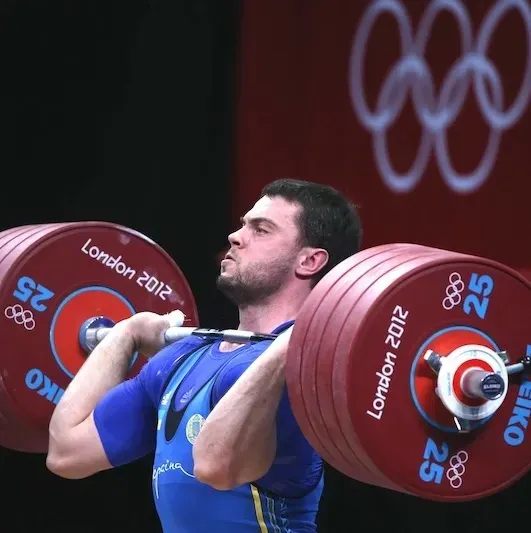

Still have questions after reading our article? Unlock your full potential by engaging with our experts and community! Don’t hesitate — leave a comment below and Jason Li will provide a personalized answer and insights to help you reach your goals.